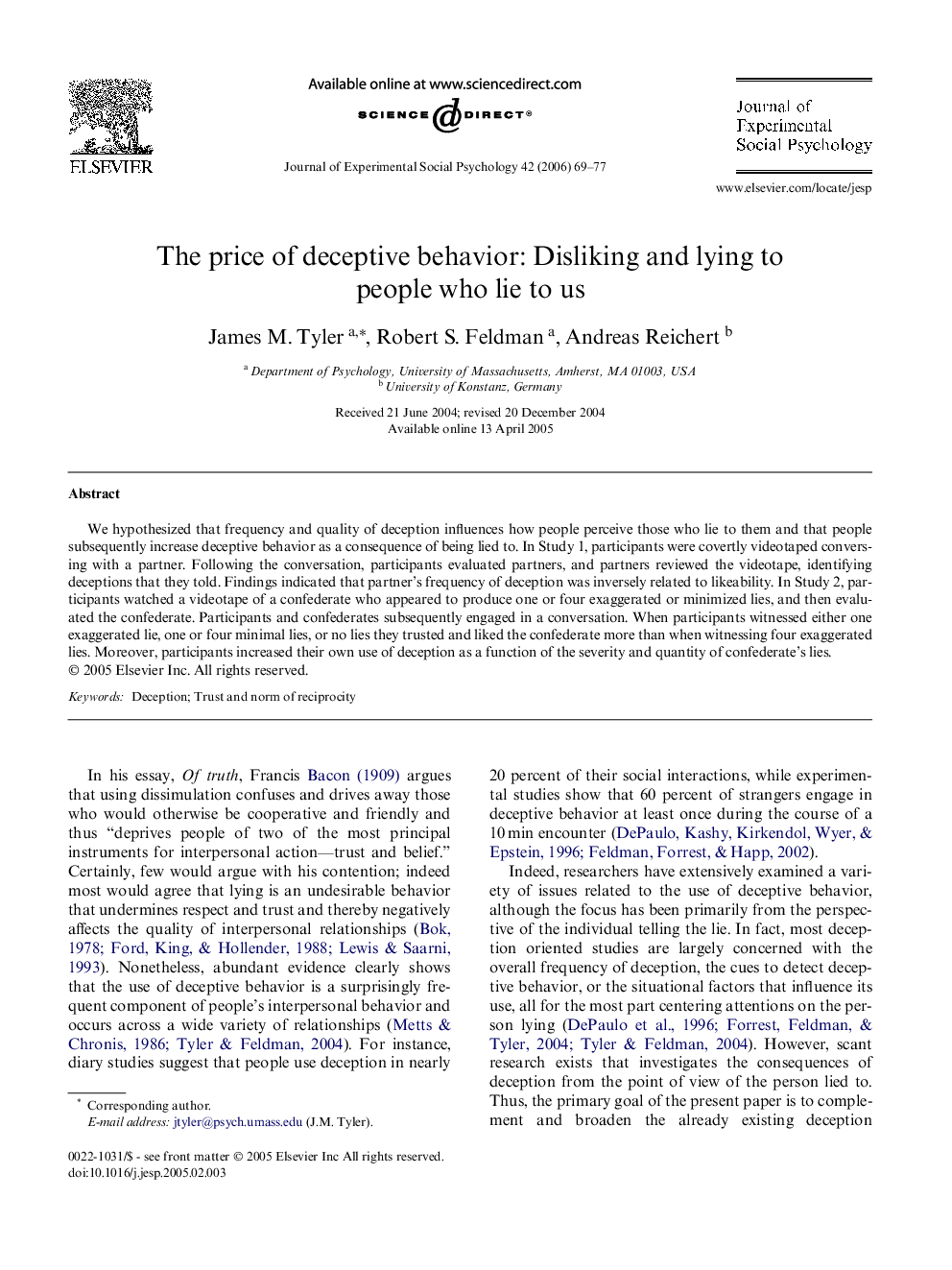| Article ID | Journal | Published Year | Pages | File Type |
|---|---|---|---|---|
| 948953 | Journal of Experimental Social Psychology | 2006 | 9 Pages |
We hypothesized that frequency and quality of deception influences how people perceive those who lie to them and that people subsequently increase deceptive behavior as a consequence of being lied to. In Study 1, participants were covertly videotaped conversing with a partner. Following the conversation, participants evaluated partners, and partners reviewed the videotape, identifying deceptions that they told. Findings indicated that partner’s frequency of deception was inversely related to likeability. In Study 2, participants watched a videotape of a confederate who appeared to produce one or four exaggerated or minimized lies, and then evaluated the confederate. Participants and confederates subsequently engaged in a conversation. When participants witnessed either one exaggerated lie, one or four minimal lies, or no lies they trusted and liked the confederate more than when witnessing four exaggerated lies. Moreover, participants increased their own use of deception as a function of the severity and quantity of confederate’s lies.
